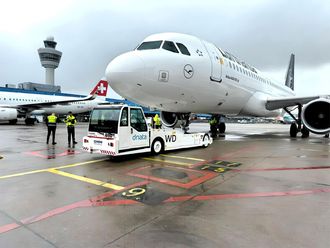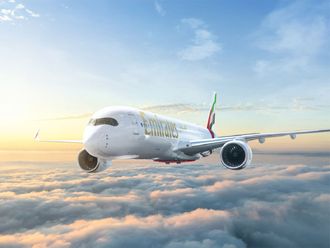LONDON: British Airways-owner IAG SA posted record first-quarter earnings as costs fell and pricing trends improved amid increased demand from business travellers.
Operating profit before one-time items surged 9.7 per cent to €170 million (Dh681 million, $187 million), aided by a reduction in labour and fuel expenses, London-based IAG said Friday. A slide in fares slowed, spurred by corporate bookings in markets including North America and Brazil.
IAG’s positive comments come after Air France-KLM Group also reported a strong start to 2017 and Deutsche Lufthansa AG posted a first-quarter profit for the only time in almost a decade. The second quarter is likely to see the first three-month price gains since 2014, propelling the UK company to higher in full-year earnings, Chief Executive Office Willie Walsh said.
“We’re seeing an improving trend and it’s moving faster than we would have expected,” Walsh said on a conference call. “This is a record performance in the first quarter, which is traditionally our weakest.”
Shares of IAG, which also owns Spain’s Iberia, Aer Lingus of Ireland and discount specialist Vueling, rose as much as 5.1 per cent and traded 4.2 per cent higher at 596 pence as of 8.02am in London. That takes gains this year to 35 per cent and valuing the company at 12.6 billion pounds ($16 billion).
IAG’s first-quarter earnings surpassed the 163 million euros estimated by analysts as employee costs decreased 6 per cent and the fuel bill was almost 11 per cent lower.
Traffic, or the number of passengers carried times the distance flown, increased 3.3 per cent, led by a 12 per cent gain in the Asia-Pacific market. Travel on premium routes surged 6.9 per cent in March. Demand began to rebound in the second half of last year as June’s Brexit vote had less of an impact on traffic than the company had anticipated.
Revenue at IAG advanced 2.8 per cent in the first quarter to 4.94 billion euros, held back by the timing of Easter and the weakness of the pound, which reduces the value of British receipts when translated into euros. The company plans to target more UK-bound travel to offset the currency effect.











